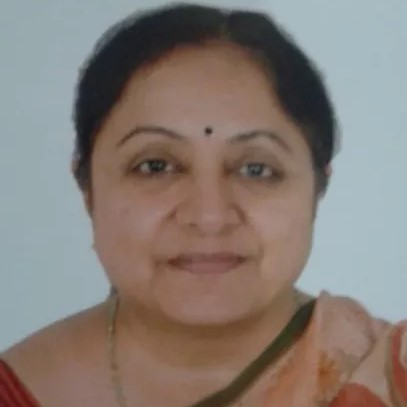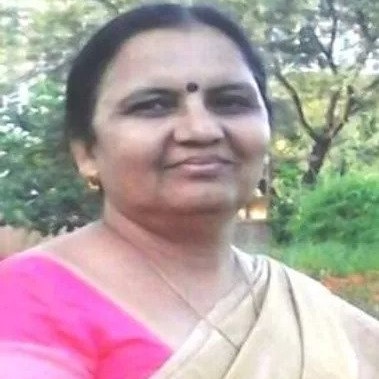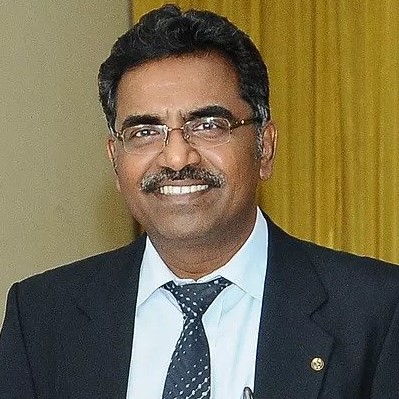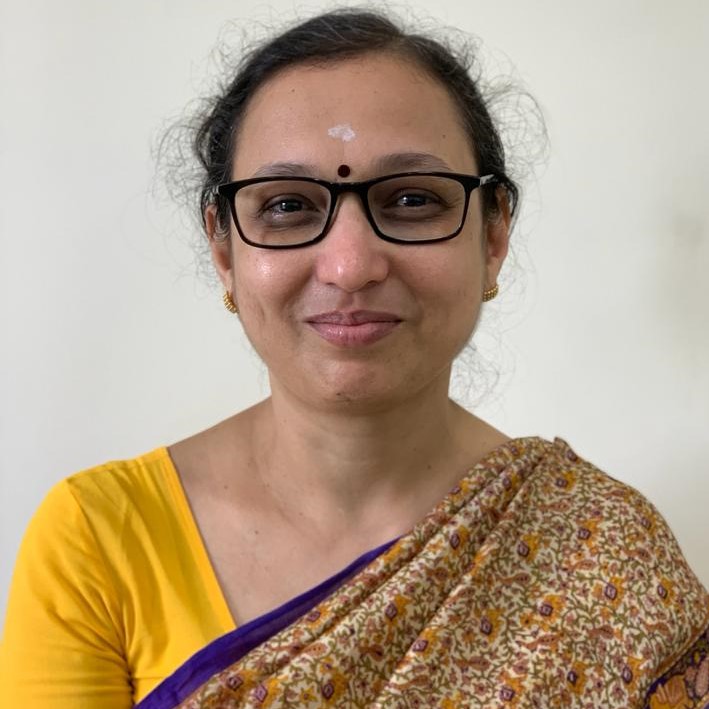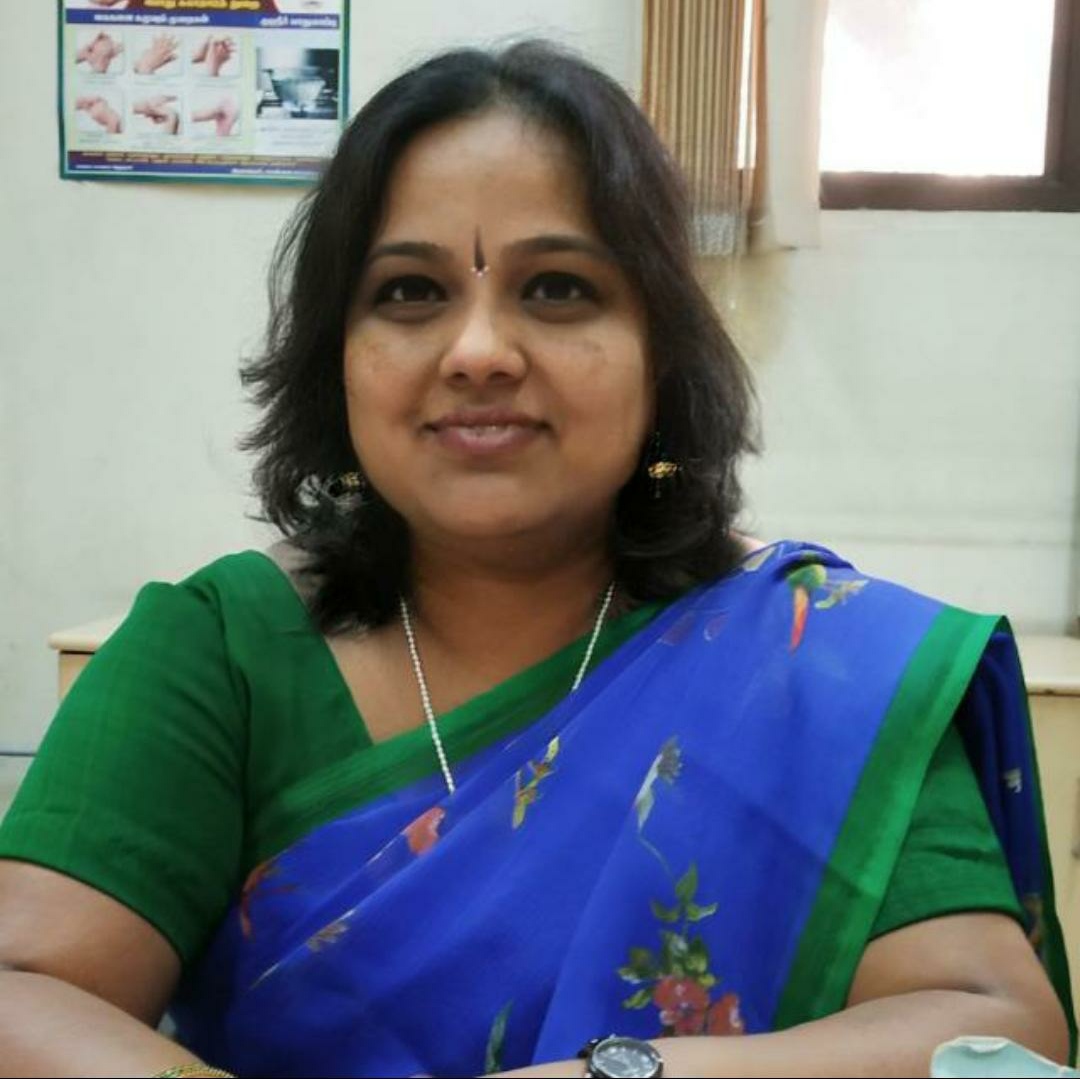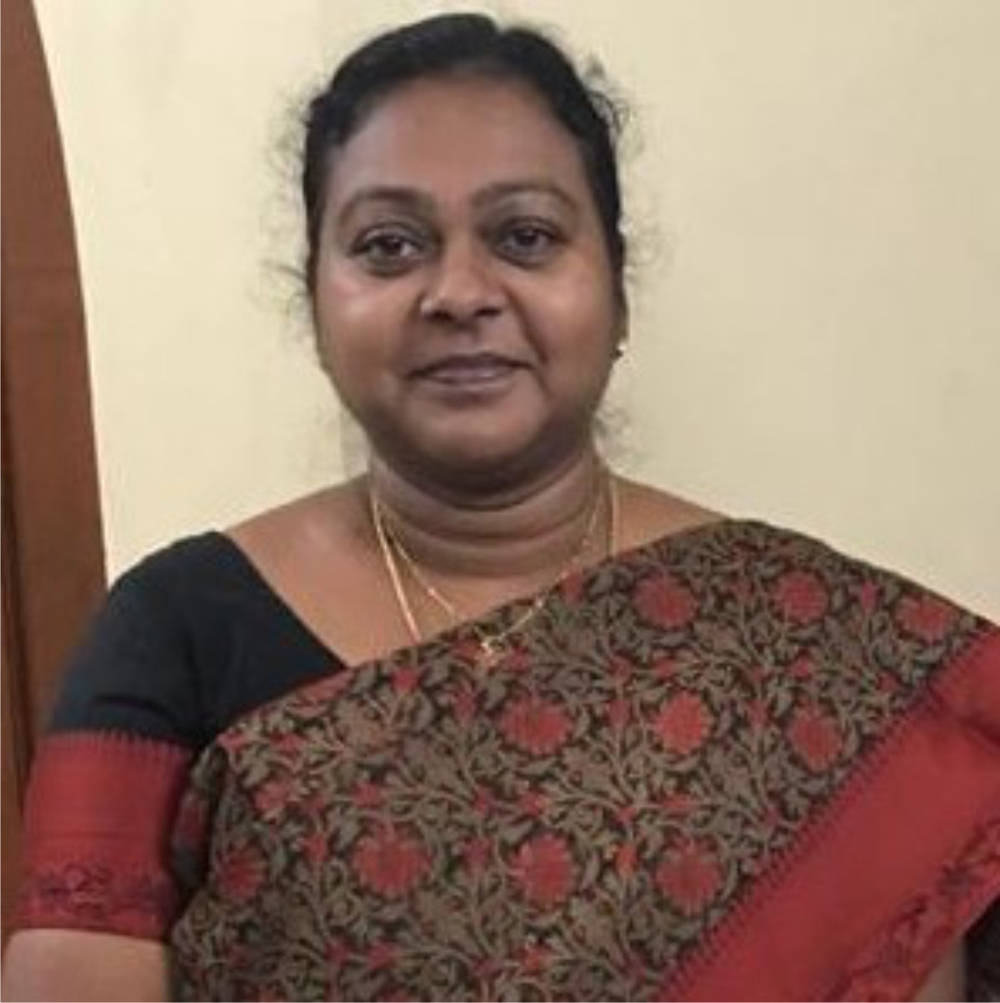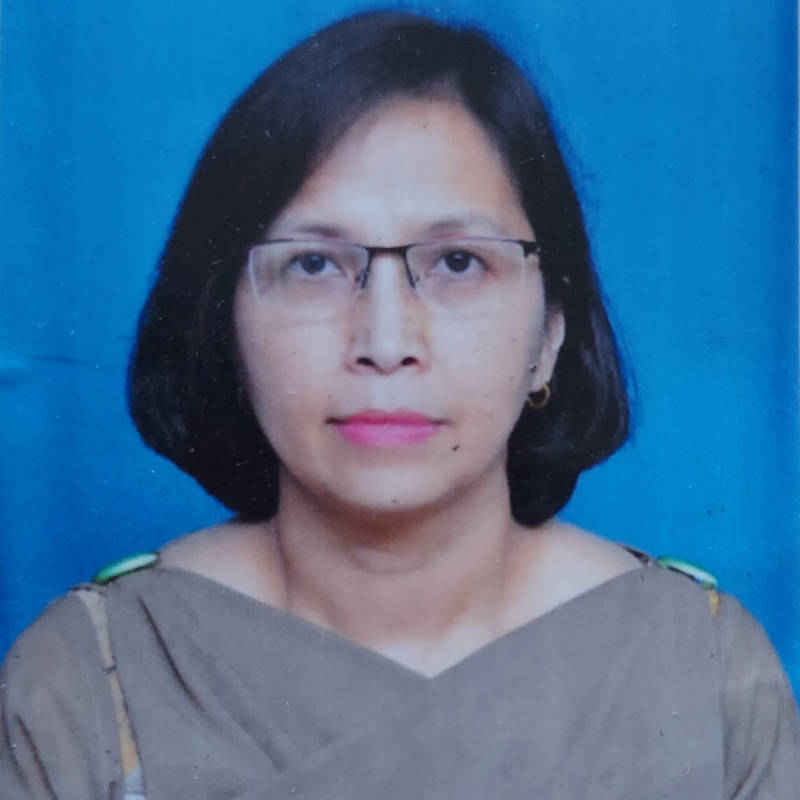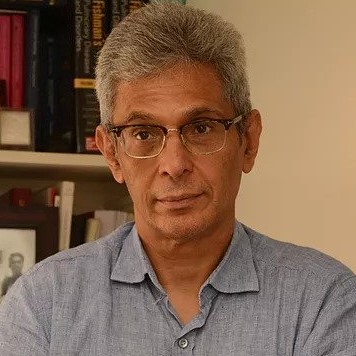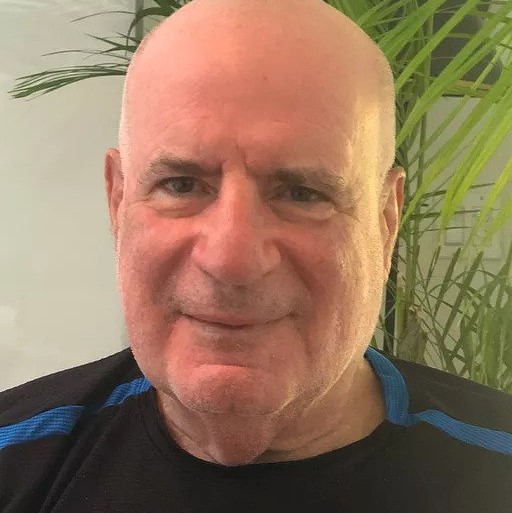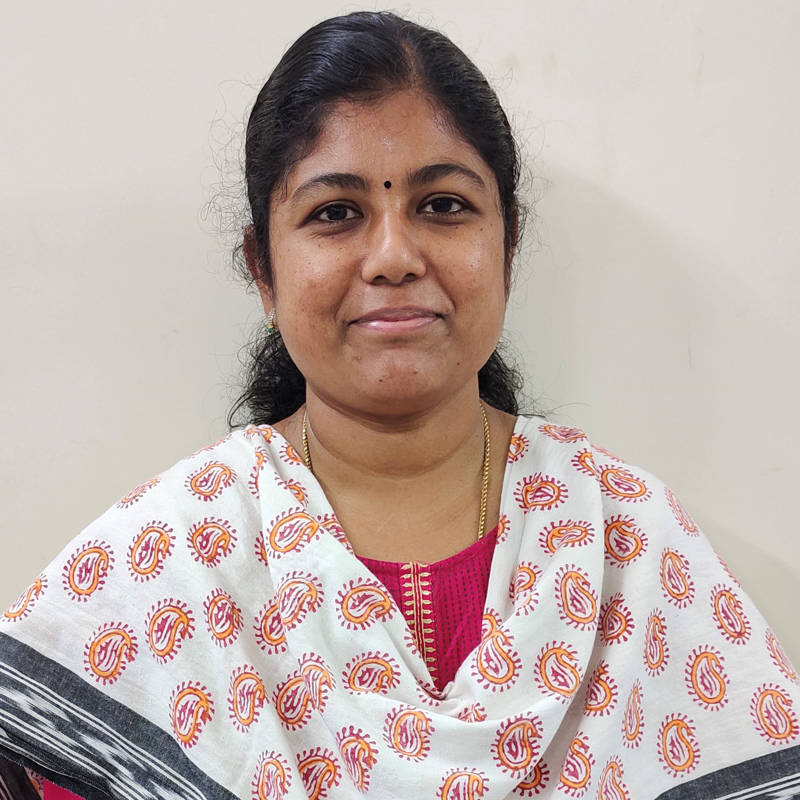Data & Biospecimen Sharing & Use Policy
Data & Biospecimen Sharing & Use Policy
Version 2.0, 24th June 2022
1. Introduction and structure of RePORT India
The Regional Prospective Observational Research in Tuberculosis (RePORT) India was jointly established in 2013 by the Government of India’s Department of Biotechnology (DBT) and the U.S. (National Institute of Health) NIH, under the Indo-US Vaccine Action Program (VAP) Phase I (2013-2019) commenced with 7 Clinical Research Sites (CRS) in Western and Southern India that were partnered with 5 U.S. academic institutions. Initially, each site had its own ‘Parent Protocol’ (PP), establishing prospective cohorts of TB disease cases (Cohort A) and household contacts (HHCs) (Cohort B). Each Parent Protocol had distinct research topics, with Cohort A studies focused on TB treatment outcomes and Cohort B on HHCs’ TB infection risk and progression to disease after exposure. In 2017, RePORT India launched the ‘Common Protocol’ (CP) Phase I with standardized data elements and harmonized procedures for enrollment of Cohort A and Cohort B. The primary objective of the CP is to provide data and specimens to meritorious researchers and collaborators to better understand (1) prognosis of TB disease and (2) pathogenesis of progression from TB exposure to disease. A RePORT India Central Biorepository (CBR) was established in NIRT, Chennai and a statistical data management center was established at the Society for Applied Studies (SAS) Center for Health Research and Development (CHRD) in New Delhi.
Common Protocol Phase II was launched in 2021 with a collaborative governance structure and well-defined scientific priorities. India-based coordination hub is housed at JIPMER Puducherry, to organize and track scientific and administrative progress against metrics. Additional technical and operational support to the consortium is provided by the US-based Johns Hopkins University. Data from all nine CRSs will be managed by the Data Hub at JIPMER and will provide centralized data management, analysis, and training to the CRS. In Phase II, two new sites representing Northern and North-Eastern India were included in addition to the existing seven sites of Phase I. NIRT will remain as the CBR for all nine CRS.
The overall aim of this SOP is to manage a bioresource that can be optimally used by scientists from academia and industry, for:
- Advancing regional TB science in India
- Fostering research collaboration within and with India-focused research that can lead to clinically
2. Scope
To establish biospecimen/data sharing principles, policies and procedures according to which biospecimen and data sharing from the RePORT India consortium will be enabled. This document aims to:
- Outline the procedures for biospecimen/ data sharing
- Define the governance of the biospecimen and biospecimen-related data sharing
- Define the roles and responsibilities involved in this process
3. term: working definitions
a. Biospecimen – which may be a:
- Primary biospecimen and its simple derivatives: Clinical specimen directly collected from the participants (e.g., whole blood and its derivatives (sera, plasma, primary blood mononuclear cells, RNA), nasopharyngeal and oral swabs, sputum, induced sputum or nasopharyngeal aspirate or gastric lavage, saliva, urine, Extra pulmonary TB specimen, Stool) during the study visits.
b. Data means a representation of information, numerical compilations and observations, documents, facts, maps, images, charts, tables and figures, concepts in digital and/or analog form.
c. ‘Raw data’ means primary data collected from a source and not been modified or changed. For example, data coming out from a sequencing machine will be considered as raw data.
d. ‘Processed data’ means the raw data that has been revised to derive certain relevant information
e. Biospecimen/Data Sharing: This encompasses biospecimens/data release and transfer to institutional or external applicants.
f. High-value Specimens: High-value specimens are those which are scientifically important and which are a challenge to collect. Ex: TB activation cases among household contacts, TB relapse/failure cases; Biopsy, CSF, synovial fluid etc. Only concept sheets with high scientific merits will be prioritized for high-value specimens. These include biospecimens from:
- Cohort B TB prevalent or activation cases
- Cohort B TB activation cases enrolling in Cohort A
- Cohort B conversion of infection status
- Resistance to infection despite exposure to active pulmonary TB
- Paediatric active TB cases
- TB treatment failure cases in Cohort A
- TB relapse/recurrence cases in Cohort A
- Deaths
Note: Basic information about the Common Protocol biospecimen inventory and data elements is updated periodically on the RePORT India website.
e. Parent Protocol (PP): Prospective cohorts of TB cases and household contacts (HHCs) addressing distinct research topics (site specific).
f. Common Protocol (CP): Standardized data elements and harmonized procedures for enrolment of TB cases and HHCs across the Clinical Research Sites (CRS) for establishing a biorepository for TB research. In this document, CP refers to both Phase I and Phase II Common Protocol.
g. RePORT India Investigators: This includes all Principal Investigators, co-investigators listed in the RePORT India Phase II Common Protocol from RePORT India participating institutions. This list of RePORT India investigators is placed at Annexure 1.
h. External (non-RePORT) Investigators: This includes all RePORT India participating institution investigators who are not listed in the Phase II common protocol as well as investigators outside RePORT India Consortium participating sites.
i. Executive Committee (EC): Consists of Principal Investigators (PI) from India CRSs and participating U.S institutions, India and U.S. sponsors and nonvoting support staff. EC is led by two chairs and two co-chairs from India and U.S respectively.
j. EC members with endorsement rights: EC members with endorsement rights will be those who are mentioned as PIs in the DBT/NIH grant agreements. Each institution (India and U.S.) should have only one approved member with endorsement rights. Due to unavoidable circumstances if the PI is not available for EC meeting, he/she can nominate one permanent faculty from their parent institution.
k. Scientific Working Group (SWG): i. Basic Science ii. Clinical Epidemiology iii. Behavioral Science iv. Lab v. Site Coordinators and Data Managers. Each SWG will be led by an India and a U.S chair elected by EC and will include investigators from the Indian CRSs and U.S. institutions.
l. Data Coordination Centre (DCC): Consists of a data scientist, RePORT India data manager, RePORT India program manager and Principal Investigator from the DCC at JIPMER and Chairs of the Data Management Working Group.
4. roles & responsibilities
1.
Executive Committee (EC)
- Executes to oversee the functioning through the biorepository and data team
- Ensures management and sustainability planning, access and governance of Biorepository.
2.
Administrative Coordinator
- Receives requests and compiles availability of data/ biospecimens on the requested proposal in coordination with the data management team and the Biorepository Scientist
- Work with the RePORT India data manager and lab manager in consolidating the minutes of the meetings and circulating the results.
- Assists in consolidating amendments, annual reports and end-of-study reports.
3.
Scientific
Working Groups
- SWG should consider whether the project overlaps with other ongoing or submitted proposals, and whether the science is relevant to RePORT India
- If there is overlap with existing projects, then the assigned reviewer from SWG must indicate if the project should be combined with other related projects or revised to avoid overlap
4.
External Reviewer
- Review the submitted concept sheets for scientific merit and to ensure that the objectives align with India’s National priorities.
5.
RePORT India Data Manager
- Lead contact for data access requests
- Facilitates the administrative coordinator in discussions with PIs requesting data prior to data access and the CS review process
- Extraction and documentation of data and responsible for secure transfer of data, as required
6.
Data Coordination Centre
- Review the statistical analysis plan
- Extraction and documentation of data and responsible for secure transfer of data, as required
- Responsible for keeping website content up-to-date
7.
RePORT India Lab Manager
- Ensures management of biospecimen collection, processing, storage, retrieval and transport.
- Biospecimen/data sharing, governance of the biorepository
- Responsible for management, troubleshooting and smooth running of the biorepository processes
8.
RePORT India Program Manager at India Hub
- Oversee RePORT India Data Manager, review data summary and quality assurance prior to EC review.
5. Governance for sharing
5.1 Custodianship of the biospecimens and associated data
a) Parent Protocol: The repositories remain with the Parent Institution who had originally collected the samples/ data associated with the samples and the same institute shall remain the custodian.
b) Common Protocol: The repository is currently maintained at Central Biorepository located at NIRT, Chennai. The institution which has collected the samples and data primarily shall retain custodianship during the course of the project. RePORT India investigators and collaborators will still be able to access the samples after the completion of the project via the concept sheet process.
5.2 Procedure of Biospecimen/ Data Sharing Application process for Common Protocol (Phase I and Phase II)
Concept sheets from external investigators using Data and samples from RePORT India Common Protocol Phase II will be entertained only three years after the completion of the study (inclusive of follow-up period).
Submission of concept sheet (CS) proposals is required for all proposed investigations (except for sub-studies which are approved as a part of Phase II CP and mentioned in the updated version of the Phase II Protocol) involving analyses using existing data sets, the collection of new data (questionnaires, clinical and physical measures), and/or use or collection of laboratory specimens of Common Protocol and Parent protocol (only if harmonized across more than one parent protocol). The process from time of concept submission to EC endorsement is expected to take approximately 5 weeks. Once a project is approved by EC, the lead investigator should contact the Data Coordination Center (data.cohub@gmail.com) for requests for data, and RePORT India lab Manager (ASivaprakasam@crdfglobal.org) for specimens.
Timeline for Submission: Submission of new CSs will be recommended four times a year and will be announced on the RePORT India website. CSs should be submitted to the RePORT India Consortium via the RePORT India website here Concept Submission well before the grant submission.
5.2.1 Steps for Concept Sheet approval
1.
Submission of concept to RePORT Consortium
Proposals must be submitted to the RePORT India Consortium via the RePORT India website using the Concept Sheet Submittal Form. Any CS submitted with incomplete or outdated submittal forms will be returned to the author for correction before it is circulated for review. Investigators are requested to provide a tentative but realistic timeframe for completion of proposed concepts and it will be tracked by the RePORT Consortium. When a CS is received by the RePORT India Consortium, the RePORT India Administrative Coordinator will intimate the EC chairs for assignment of reviewers. Each CS will be assigned a number to distinguish it from other concept submissions and will be shared with the submitting investigator. The CS number will be used to track the project for all manuscripts and other projects that ensue.
2.
Internal Review (~2-week period)
Purpose: The purpose of the internal review conducted by SWG members is to review the scientific (e.g., questions related to: Is science relevant to RePORT India? Should project be high priority? etc.) and operational feasibility (e.g., questions regarding implementation, overlap, duplication of study etc.) of the proposal.
The Report India Administrative Coordinator in consultation with the EC chairs will identify and assign the appropriate internal SWG reviewers for each concept sheet. Additional internal reviews (Lab review, Genetics review) may be conducted if biospecimens are requested. The Administrative Coordinator will confirm that each selected internal reviewer is willing and available to provide comments within the given timeline. Proposed reviewers with potential conflicts of interest (e.g., Investigators from the site that is proposing the CS) should recuse themselves from the evaluation process. The assignment timeframe will be 2-3 days.
- Purely analytic CSs (Those which request only epidemiologic data) may be endorsed by the EC at this stage itself if both the EC and SWG chairs agree that external review is not needed.
- If the CS was submitted by an external non-RePORT investigator, it is the responsibility of the SWG to assign a RePORT India collaborator to work with the investigator. The SWG will list the name of the suggested RePORT India collaborator on the CS Review form. The RePORT India Coordinator will then circulate the name of the assigned collaborator to the Scientific WG Chairs and EC Chairs.
Once the assignment of internal reviews has been completed, the Administrative Coordinator will circulate the CS to the SWG for review. After the initial SWG review, the CS may be discussed at the monthly WG meeting or in a separate meeting (if needed). In general, all CSs that require collection of new data or modifications to existing data collection instruments or methods (new or modified) should be discussed by the WG during a call. The comments of the WG will be documented as the meeting minutes. At the end of the internal review, the SWG will circulate the results of the comments/discussion/review with the RePORT India Administrative Coordinator. The decision to advance the CS to the next phase in the review process will be conducted via an electronic approval of the RePORT India Concept Sheet Reviewer Rating Form which includes both written evaluation comments and numerical ratings.
3.
External Review (~2week period)
Purpose: The external reviewers will include researchers/TB experts from India & US who are disconnected from RePORT India Consortium Operations. The purpose of external review is to review the scientific merit and alignment of the proposal with National TB research priorities.
The Administrative Coordinator in consultation with the EC chairs will assign 5 external reviewers (3 Indian and 2 U.S.) from the pre-approved list of scientists for each CS. The Administrative Coordinator will confirm that each selected external reviewer is willing and available to provide comments within the given timeline. Once the assignment of external reviews has been completed and approval is given to proceed, the Administrative Coordinator will circulate the CS to the 5 external reviewers. He/She will include the comments and results of the internal review with the submission to facilitate an expedient external review process. The decision taken by the external reviewers will be final to approve the CS. This will be conducted through RePORT India Concept Sheet Reviewer Rating Form which includes both written evaluation comments and numerical ratings.
4.
Endorsement by EC (~1 week period)
The EC will review the comments and recommendation of the internal and external reviewers and provide letter of support for the CS. The RePORT India Coordinator will share reviewer comments (names removed), the outcome of the review process and letter of support (If CS is approved) with the submitting investigator.
5.3 DBT No Objection Certificate (NOC) requirement
Once all the steps in the Concept Sheet approval process have been completed and the CS is approved (See Section 5.2), the CS will go through the DBT NOC process.
Proposals that do not include foreign funding and samples/studies analyzed in India using Indian funding will be exempt from DBT NOC. All other proposals will require DBT NOC which constitutes an administrative approval by DBT.
5.3.1 Timeline for DBT NOC (45 days)
The DBT NOC process is as follows:
- Indian Principal Investigator of the proposal submits the DBT NOC package, including all related documents in the checklist, which can be found on the RePORT India website under the “Resources” tab
- DBT conducts an administrative review of the proposal and related documents within 45 days of submission
- DBT issues the NOC to the Principal Investigator within 45 days of submission
5.4 Revised Concept Sheets
Investigators with a previously-approved CS may wish to amend a CS to request additional specimens and/or data. In this case, the original CS Submittal Form should be revised. The investigator should highlight all changes and additions in track changes. In all cases possible, the original internal and external reviewers should be assigned to review the revised CS. Revised CSs that are approved will either (1) be assigned the same CS number as the original project, if the amendment requests additional resources solely for completion of the initial project, or (2) be assigned a new CS number if the amendment proposes the addition of data/analyses to the project that will result in publication of an additional manuscript.
5.5 NIH / DBT / other external grant submissions (refer to Fig.1)
If an investigator within the RePORT India Consortium plans to submit a proposal for funding (i.e., to the NIH, DBT, or other funding organization, the investigator should intimate to the EC chairs via email to obtain acknowledgement. This will ensure that the RePORT consortium is aware such a proposal is being submitted based on RePORT resources such as data and/or specimens. After the PI submits the grant proposal, a RePORT CS should also be submitted as soon as possible. A complete CS review will then be arranged. Reviewers’ comments will be shared with the submitting PI, according to the process outlined above (Section 5.2). If the grant proposal is accepted for funding, and if the funding is international, the study should be submitted for DBT NOC (Section 5.3).
If the funding institution decides not to fund the project and the investigator still wishes to proceed with the work, the concept sheet will be assigned a regular CS review as described above (Section 5.2).

5.6 Data requests after approval of the concept sheet
- Once a project is approved by the EC, the lead investigator can send a request for data, specimens or analytic support. All data requests that involve data housed at the Data Coordination Centre, JIPMER or another data repository external to the site which is making the request, should be submitted to RePORT India Data Manager data.cohub@gmail.com.
- The e-mail should include:
- A list of RePORT India data variable names desired
- The visit number(s) and/or calendar dates for which data are needed
- Communication regarding the EC approval of the CS
Variable names can be obtained from the RePORT India data elements bank. The RePORT India Common Protocol data elements bank is posted on the RePORT India Web Portal.
- The RePORT India Data Manager and the Data Core group will review the data sharing request outlined in the research proposal and seek clarification from the requesting investigator if needed. The RePORT India Data Manager will maintain a data approval tracker for all data requests.
- Once all clarifications are obtained, the RePORT India Data Manager will send a formal email to all the PIs of the consortium regarding the complete details of the request. PIs will be provided a deadline for comments.
- Based on the comments from PIs, the RePORT India Data Manager will send a final confirmatory email to the requesting Investigator that the data request was approved.
- The RePORT India Data Manager will share the merged data from all RePORT India CRSs with the requesting Investigator via a secure mechanism.
Approximately two weeks may be required for the production of an analytic database. If the data request is complex, additional time may be necessary.
5.7 Biospecimen requests after approval of the concept sheet
The list of Common Protocol biospecimens and the Schedule of Events (SOE) for Cohort A and Cohort B are available in RePORT India website. All specimen requests should be submitted to RePORT India Lab Manager at asivaprakasam@crdfglobal.org at the Central Biorepository accompanied by the EC approval of the CS. Requests for specimens will not be processed until verification of local IRB/IEC approval of the Investigator AND the CRU sites from where the specimens were obtained has been provided. All requests should include a completed Central Biorepository Request Checklist or a completed DNA Biorepository Biospecimen Request Form (for DNA requests) – both can be found on the RePORT India web portal (https://reportindia.org/) and can also be requested from the RePORT India Administrative Coordinator. Overall timeline for providing biospecimen/ live culture/culture isolate/data from the time of submission of application by the investigator will be 30 working days.
5.7.1 Selection of Specimens
If an investigator has already determined the appropriate RePORT India Participant ID visits for his/her project, an Excel spreadsheet of RePORT India Participant IDs, visits, and visit dates should be attached to the e-mailed specimen request. If the investigator has not yet determined appropriate RePORT India Participant ID visits, RePORT India Data Manager will be assigned to work with the investigator to select appropriate RePORT India Participant ID visits based on the selection criteria in the approved concept sheet.
5.8 Agreement (MTA)
The requesting institute/organization should be notified at the appropriate stage of the review process by the biorepository team so that suitable agreements can be prepared immediately after a successful review. Agreements will be prepared between institutions/organizations (institution where the biorepository is held and the institution/organization hosting the investigators requesting for the biospecimens and data) and not at an individual level for biospecimens/data shared and leaving the institute. A fully functional MTA is needed even for sample transfers happening within India (either between the two participating Indian institutions or between the Central Biorepository and the institution which is performing the assays.
Agreements/MTA should specify the following:
- Manner in which the data will be used; the data can only be used for the purposes for which it has been released.
- Procedures on how anonymity and confidentiality of the patients will be maintained at all times (no data will be used to identify individual patients).
- Details on how Intellectual Property Rights will be protected and will be made available to the public forum as publications, presentations and products.
- Statement on how credit will be given to the RePORT India Consortium (institutions and their investigators who have contributed to collection and processing of biospecimens and the meta data) while reporting, presenting or publishing the results of the research/project in any manner. If it results in a successful commercial product, their product information sheet must state: “We acknowledge the contribution of RePORT India Consortium in development of our product”.
- Details on the process of arbitration (if required).
- Format of documents that will have to be submitted to the biorepository team and CSRC at regular intervals as report on progress.
The MTA should clearly specify that it is mandatory for applicants to publish reports/data and return the generated data to facilitate an “open research” platform.
5.9 Data Receipt and Progress Reporting
The EC, on a regular basis will review biospecimen/data access request proposals and monitor the progress reports from already approved proposal/s either in person or through mail correspondence, depending on member availability. They will oversee and approve of all data and biospecimen access after prioritizing based on biospecimen availability, scientific merit, usefulness in terms of public health importance, feasibility, appropriate use, ethical appropriateness and novelty of the proposal.
- Applicants should acknowledge receipt of biospecimen/data and report immediately if there are any problems with the data/biospecimens (appropriate forms will be provided for feedback).
- Onward sharing of data/residual biospecimens is not permitted; interested investigators will have to submit fresh applications to the biorepository.
- The following documents should be submitted to the biorepository team and the EC at regular intervals: (i) progress updates (interim report or Annual Reports) (ii) results of the research study in the form of presentation/s (poster/talks) at conferences, published abstracts, publications as per the terms and conditions agreed upon in the Material Transfer Agreement.
- Overall accountability of reporting to funding bodies for research projects should be the responsibility of requesting PI.
Bi-annual progress reports should be submitted to the Executive Committee of RePORT India consortium by the data/specimen requesting investigators.
5.10 Procedure for Data Sharing Application process for Site-Specific Concept Sheets based on Common Protocol
Site-specific CSs related to the Common Protocol are those that propose to utilize and/or collect Common Protocol data from one site only and without utilizing RePORT India Consortium resources (e.g., funding, repository specimens, specific CHRD-SAS or JIPMER data hub generated data sets). Site-specific data (only) generated from a single site may be used only by the Site PI for additional study purposes or publications. Such site-specific CSs need not go through the regular CS approval process (Section 5.2), however, they should be communicated to the RePORT India Administrative Coordinator and the EC Chairs by email. This is for tracking purposes and to avoid duplication.
5.11 Procedure for Biospecimen/ Data Sharing Application process for Site-Specific Concept Sheets based on Parent Protocol
Utilizing individual site parent protocol data do not require prior CS approval by the RePORT India EC or by DBT. However, they should be communicated to the RePORT India Administrative Coordinator and the EC Chairs by email for tracking purposes and to avoid duplication. The resulting manuscripts and abstracts should be reported to the consortium.
5.12 Procedure for Biospecimen/ Data Sharing Application process involving multiple sites based on Parent Protocol
Studies involving multiple site parent protocols will undergo the concept sheet review process as mentioned in Section 5.2 The collaborating institutions and the respective PIs should come to an agreement for the resulting manuscripts during the initial planning process.
6. Data Deposit strategy and Timing in Public Domain
The true impact of a repository is measured in terms of how many biospecimens have been disbursed. To increase accessibility, the data on available bioresources shall be posted on the RePORT India website and updated bi-annually. Based on DBT PRIDE guidelines it is recommended that data generated using public funds should be shared on a common platform for efficient usage of the available data. Indian Biological Data Centre (IBDC) at Regional Centre for Biotechnology, Faridabad is the national repository for biotechnology data in India. Biological data (as specified in the Biotech-PRIDE guidelines) being generated in the RePORT India project will be submitted to IBDC or any other data repository identified by DBT in a phased manner in compliance with the Biotech-PRIDE Guidelines 2021. Raw (Level-1) data along with experimental metadata will be deposited within 1 year of the generation of the data. Processed (Level-2) data will be deposited within 2 years of data generation. However, depositing data in the national repository does not always mean that data will be available for sharing. The consortium reserves the right to implement differential access or a moratorium period for data sharing depending on the nature of the data. The modalities for data sharing will be through managed data access and “No” public access to sensitive data. Data users, prior to actual download, will be required to undergo the concept sheet application process of the RePORT India consortium.
7. Dispute settlements
All the disputes arising out of this policy between parties, Sections, Individuals, Institutions etc. will be settled through mutual discussion and consensus.
8. references
National Data Sharing and Accessibility Policy 2012
Biotech – PRIDE Guidelines July 2021, Department of Biotechnology, India
Guidelines for sustaining DBT- Bio-Banks and Cohorts
National Ethical Guidelines for Biomedical and Health Research Involving Human Participants, 2017
Appendix 1
List of RePORT INDIA investigators
Prepared by
Dr. Senbagavalli Prakash Babu
Approved by
Dr. Sonali Sarkar
Approved by
Dr. Amita Gupta
Approved by
Dr. Padmini Salgame
Approved by
Dr. Vijaya Lakshmi Valluri
Sumbittal Form for Internal Investigators
All form fields are compulsory. Enter NA if the field is Not Applicable. Please go through the entire contents of the form before you begin. The form cannot be saved halfway through the submission. If you prefer to fill the form offline, please download it and email the completed form to RePORT India Coordinator, U.S. Secretariat and Executive Committee Chairs at dgnanadason@crdfglobal.org
Submittal Form For External Investigators
submittal form for external investigators

